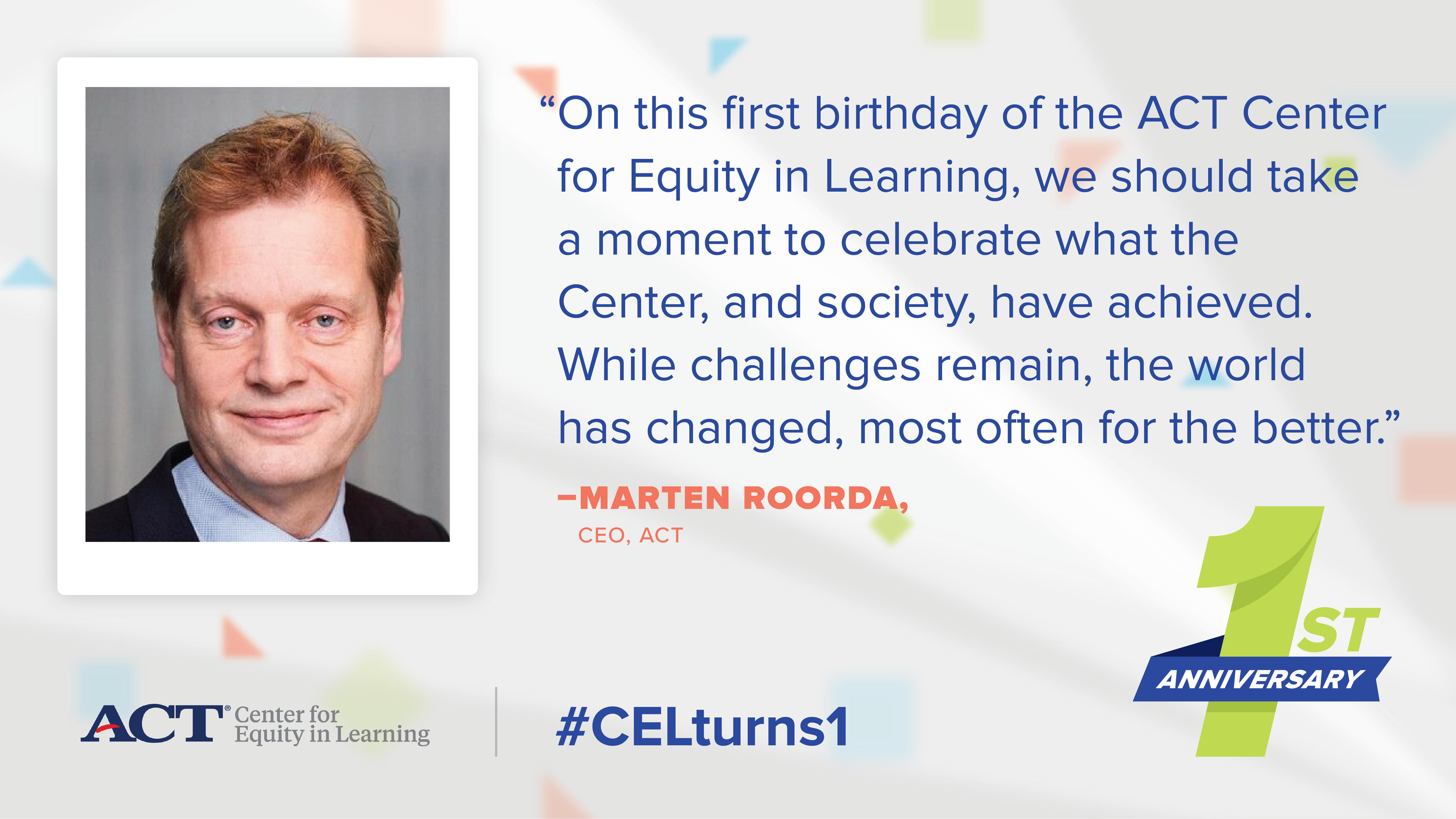
Not long ago, college was a privilege reserved for the fortunate few. If you had money, went to the right high school, and were born into a favored race or gender, there might be a place for you.
If you lacked any of these attributes, the odds were stacked against you ever stepping foot on campus.
By the mid-20th century, that began to change. The GI Bill cracked open the doors to higher education for service members returning from World War II, and the civil rights and women’s rights movements opened the doors still further.
It was into that environment ACT was born—with doors ajar, but not necessarily for everyone.
In 1959, America’s dominant college admissions test proudly put “aptitude” at the center of its name. Indignant with that approach, ACT’s founder – EF Lindquist – staked his unrivaled reputation on helping students demonstrate their earned achievement, rather than ratify the “aptitude” with which a rarefied board suggested they had been born.
Fast forward nearly 60 years, and ACT’s founding philosophy still stands, stronger than ever, exemplified most recently through the creation of the ACT Center for Equity in Learning.
One year ago – June 22, 2016 – ACT created the Center, making its commitment to America’s underserved students crystal clear. During its first year, the Center has:
- Conducted research illuminating the barriers and the potential breakthroughs that can affect student learning.
- Worked with policy leaders to increase the understanding of underserved students and the measures that can be taken to help them
- Engaged with families to improve students’ prospects for college and career success
- Worked to make ACT’s programs accessible to every student, no matter what their finances, language fluency, disabilities, or familiarity with the pathways to college and career, and
- Partnered with nonprofit organizations, foundations, and private and public agencies to expand the reach and impact of its work.
While the needs of EVERY student have remained front-and-center since ACT’s founding 58 years ago, the environment in which ACT operates has evolved.
TV was just catching on in 1959. Today the best way to reach people—especially young people—is often through social media. During its first year the CEL has made more than 19 million Twitter impressions, reaching people in all 50 states and 43 countries around the world.
In the 20th century, power was concentrated. Today, the power to change society requires people with a variety of perspectives. That’s why I’m proud of the partnerships the Center has developed with the United Negro College Fund, Excelencia in Education, the American Council on Education, and many other organizations that work to create opportunity for all people.
An example of the changing landscape is the Center’s work with Univision. A half century ago, America had three TV networks. Today, we have hundreds, with Univision reaching millions of Hispanic families with news of initiatives such as the Parent Academies, which the Center is proud to support. In fact, in 2017 everyone is a broadcaster; a recent Facebook Live event featuring Juan Garcia from the Center for Equity in Learning reached more than 172,000 viewers—through a platform, Facebook, that didn’t even exist when today’s high school students were born.
As we look to the future, our opportunities continue to grow.
This summer, ACT is proud to fuel Roadtrip Nation’s Beating the Odds Roadtrip, with advisory support from Michelle Obama’s Better Make Room. This road trip will feature three college students driving a bright green RV on a journey of discovery, a subsequent documentary special and a Share Your Road platform.
Mrs. Obama’s Better Make Room campaign captures the spirit that drove the founding of ACT in 1959, and the creation of the Center one year ago today. That’s why I’m excited to have joined the charter board of Reach Higher, led by Michelle Obama.
The Better Make Room ethos says “We don’t care how it’s always been done. What we care about is equity for everyone. If you don’t have space for new ideas or new people, too bad. You better make room.”
On this first birthday of the ACT Center for Equity in Learning, we should take a moment to celebrate what the Center, and society, have achieved. While challenges remain, the world has changed, most often for the better.
We’re not where we want to be yet, but with the help of students, teachers, parents, policymakers, and perhaps a bright green RV, we’ll get there.
One year at a time.
